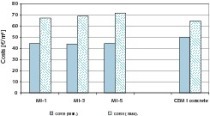Certificate for small wastewater treatment plants
The sustainable management of resources is rapidly gaining in importance on both a national and European level. There are continuously increasing requirements on the information to be provided to customers and contracting authorities regarding the use of material, energy consumption and environmental impact.
To assess the sustainability and resource efficiency of building and operating water management infrastructure, the lifecycle-based eco-efficiency analysis provides a valuation standard making the environmental impact, resource consumption and costs of water-management product systems transparent over their entire lifecycle. The valuation approach also allows the cleaning performance or water protection effect to be considered in relation to the costs involved.
Based on a valuation approach developed with DBU (Deutsche Bundesstiftung Umwelt = German Federal Environmental Foundation) funding (//www.zenodo.org/record" target="_blank" >www.zenodo.org/record:https://www.zenodo.org/record /228162), the resource consumption and environmental impact of products and services are weighed against the resulting costs on the basis of a standardized procedure (eco-efficiency). The environmental impact is assessed based on the established lifecycle assessment method. The costs are accounted, from purchase via use to disposal, from the perspective of a plant operator.
The eco-efficiency certificate based on this valuation approach documents the ecological performance of water management systems and services, certifying their cost and resource efficiency vis-à-vis buyers, decision-makers and operators.
The contribution will present this valuation approach. Methodological and substantive answers will be provided on current and future requirements of national and European norms, rule sets and standards in the fields of ecological design, environmental product declaration, carbon offset, green procurement and resource efficiency in general.





